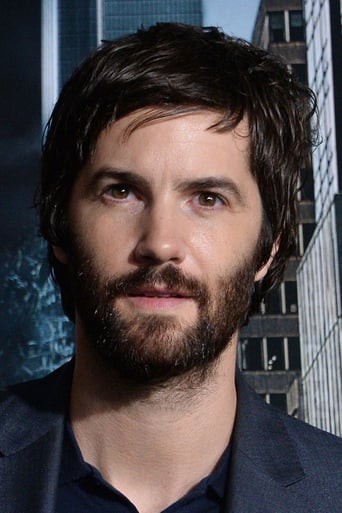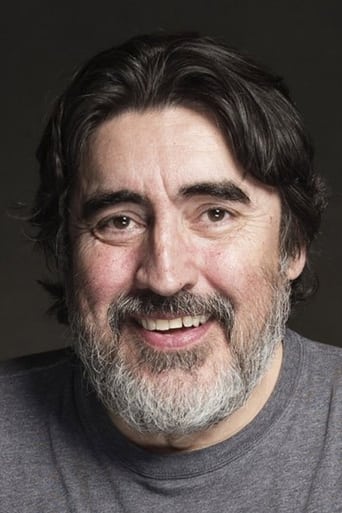robert-temple-1
Stephen Poliakoff has written and directed another masterpiece of a TV series, set in the immediate aftermath of World War II. I am however horrified at the torrent of abuse which this series has received from many sides. Is it possible that audiences are losing the ability to appreciate drama which lasts longer than a soundbite and requires a bit of thought? Or is some of the opposition to the series politically motivated? In this series, Poliakoff deals with his most important subject matter yet. I don't know about the 1938 Foreign Office meeting which figures so prominently in the story, as it may be fictional, but other than that, all the issues in this series are absolutely accurate. It was high time somebody tried to deal with these matters in dramatic form. In his series before last, GLORIOUS 39 (2009, see my review), Poliakoff dealt with the pro-Nazi sentiments of the British Establishment just before the War. Now he has carried those concerns further, by exploring the monstrous events which followed the War, regarding 'the ones who got away' or, more to the point, were allowed to get away with it. By 'it' I mean war crimes, torture, murder, genocide, and all the rest. Although this series deals with the much smaller compass of Britain, the really bad things which happened were in America, where everything was on a gigantic scale. One day, perhaps someone will dramatize that. From 1943 onwards, the 'smart Nazis' were preparing to flee Germany, and most of them later did so. The organiser of all this was Martin Bormann, Hitler's Secretary and manipulator. The organisation he set up was called the Brotherhood (Kameradenwerk), and the ODESSA organisation for fleeing Nazis was only a small part of it. I urge all interested persons to read the fundamental book which is necessary to understand what really happened, namely the meticulously researched book by one of America's leading investigative reporters, William Stevenson, entitled THE BORMANN BROTHERHOOD (1973). It provides the necessary background briefing for anyone who worries about the survival of genuine Nazism to this day, as what has now come to be called The Nazi International. In summary, what happened is this: Germany lost the war, but the Nazis did not. They merely spread and metastasized, no longer requiring their original host body, but finding new places to come to rest, such as Argentina, Chile, Bolivia, Paraguay, Mexico, Sweden (which was never de-Nazified, for which see the books of Stieg Larsson and the films of them), Switzerland, Spain (the headquarters of ODESSSA was in Madrid under Franco), Syria, Egypt (President Anwar Sadat had been a Gestapo agent during the War). The total wealth smuggled out of the Third Reich before the surrender of Germany was worth a few trillion dollars in today's money. Most of the gold of Europe 'disappeared', many ingots being smuggled out in I. G. Farben's tanks of poisonous chemicals. (Gold cannot be destroyed by any chemicals, and customs agents do not open poisonous chemical tanks.) With these funds a Fourth Reich was to be created in the future. Poliakoff has clearly been doing his research for years. He wants to alert the public in the only way possible in a controlled-media world, by means of drama which pretends to be fiction, and superficially is fiction, as far as storyline characters go. All the investigators of war crimes of the Allied governments after the War were side-lined, denied funds, files, and access, exactly as shown in Poliakoff's series. It is all true. Wake up, everyone! We have few details of the operations of the Russians available to us, but we now know a very great deal indeed about the monstrous illegality and immorality of such notorious projects as the American Operation Paperclip and its sister operations, which brought thousands of SS officers guilty of mass murder to America to work as scientists. For instance, Werner von Braun had been a Major in the SS, and his boss Dornberger had been a Major General in the SS. And yet they and their SS chums ended up running the American space programme and creating America's intercontinental ballistic missile technology. (Dornberger, 1895-1980, is wrongly described on the internet as a harmless 'German artillery officer', and his SS status has been covered up.) Dornberger even ended up as Vice President of the Bell Aircraft Corporation. Poliakoff's series concentrates on a single German scientist captured by the British, who is wanted by Britain to create a jet engine by improving and completing Frank Whittle's abandoned one. It is later discovered that he had worked in the German rocket programme where slave labourers were executed on a daily basis, and is in fact a war criminal. But enough of history, let us turn to the series. The outstanding performance is by Alfred Molina, as a senior Foreign Office mandarin. Poliakoff has a peculiarly evocative and elegiac style, and Molina 'gets it', thus effectively taking the place of Michael Gambon as the character who provides the correct 'tone'. Lindsay Duncan, in her supporting role, does the same. That is probably because they are both old pros. The younger members of the cast struggle initially, but finally get into groove and 'find the tone'. Poliakoff's magic comes from this 'tone', which always involves the elevating of memory into a numinous realm, where he attempts to touch some other world. Music is always important in a Poliakoff creation, and it is interesting that scent comes into this one as well, via Lindsay Duncan. (He'll be showering his actors with madeleines next!) Poliakoff charmingly has a child as a main character, played brilliantly by the young Lucy Ward, who speaks with her eyes. There are so many fine performances. Freddie Highmore is genuinely inspired as Victor Ferguson, the autistic brother of the hero, who is played in a droll and head-slanting manner by Jim Sturgess. This series is truly magnificent.
david hollyfield
This will be my first review on IMDb. I'm compelled to write after reading some of the negative reviews of this series.The vitriolic, spiteful comments made by some reviewers leads me to believe that this series must have gone straight over their heads.Stylistically, script, plot, Mise en scene, characterization, acting, direction were all superb. I found myself totally immersed from the first episode.The period setting and costumes created a totally believable world for me.This is my first exposure to the work of Poliakoff, and I will make a point of looking out for his work in future.I honestly don't understand the degree of loathing he seems to have inspired in some viewers. Maybe they need their drama to be a little more pedestrian, a little more 'action packed'? A little more formulaic? One of their main criticisms was a lack of 'reality'. Are they forgetting that this is fiction and not a documentary?I personally found the degree of dramatic tension and suspense was almost unbearable at times. I can't see what anyone found lacking.The series also raised some interesting moral dilemmas.This is the sort of viewing that I pause often, to draw it out because I don't want it to end.I think the haters must have missed the subtlety of this series.Anyway, that's my 2 cents worth.





